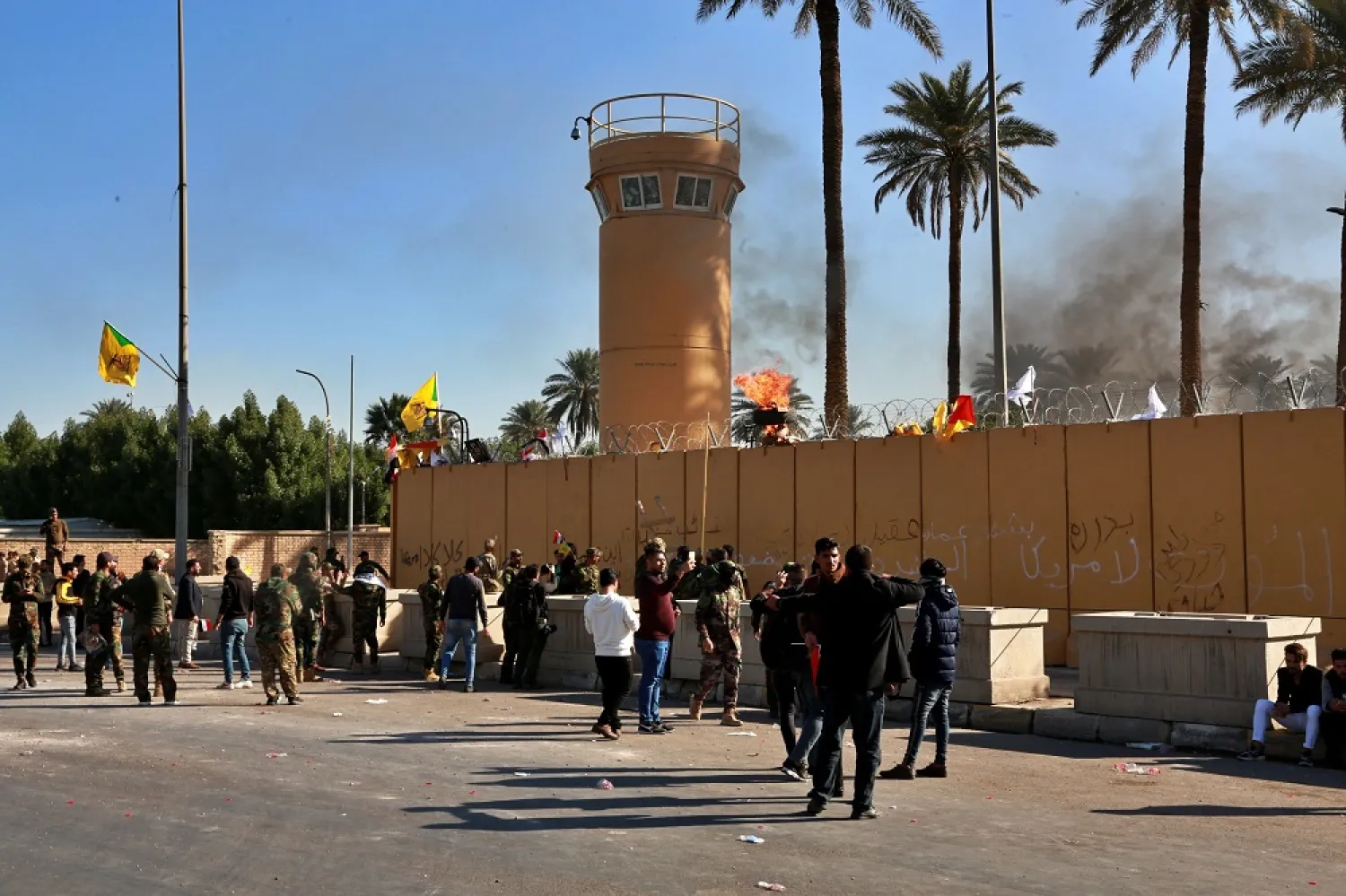Supporters of Iranian-backed Iraqi paramilitary groups who stormed the US embassy’s perimeter and hurled rocks in two days of protests withdrew on Wednesday after Washington dispatched extra troops and threatened reprisals against Tehran.
The demonstrators, angry at US air strikes against the Tehran-backed Kataib Hezbollah group that killed at least 25 people, threw stones at the building while US forces stationed on the rooftops fired tear gas to disperse them.
But by mid-afternoon, most appeared to have obeyed a call to withdraw, issued by the Popular Mobilization Forces (PMF) umbrella group of mainly Shiite militia, which said the demonstrators’ message had been heard.
Young men used palm tree branches to sweep the street in front of the embassy compound, while others packed up equipment and vans arrived to take people away. Some left to set up a protest camp in front of a nearby hotel.
Iraq’s military said all protesters had left by the evening.
The protests mark a new turn in the shadow war between Washington and Tehran playing out across the Middle East.
US President Donald Trump, who faces re-election in 2020, on Tuesday threatened to retaliate against Iran but said later he did not want war.
The unrest followed US air raids on Sunday against Kataib Hezbollah bases in retaliation for missile attacks that killed a US contractor in northern Iraq last week.
On Tuesday, crowds chanted “Death to America!”, lit fires, and smashed surveillance cameras. They breached an outer perimeter of the embassy but did not enter the main compound.
Biggest US embassy
The huge embassy, built along the banks of the Tigris River in central Baghdad’s fortified “green zone” during American occupation following the 2003 invasion that toppled Saddam Hussein, is the biggest US diplomatic mission in the world.
Washington said its diplomats were safe and was rushing hundreds of extra troops to the region.
The embassy said all public consular operations were suspended and all future appointments canceled.
The anti-American action comes after months of protests in Iraq against the government and the Iran-backed militias which support it. Many Iraqis complain their country has become a battlefield for a proxy war for influence between Washington and Tehran, and their leaders are too beholden to outside powers.
Iraq’s government has long faced frictions in its close relations with the two foes. Trump spoke to Prime Minister Adel Abdul Mahdi on Tuesday and demanded Iraq protect the embassy.
Iran’s Supreme Leader Ali Khamenei on Wednesday condemned the US attacks. Iran summoned a Swiss envoy, who represents US interests in Tehran, to complain about what it described as “warmongering” words from Washington.
Trump accused Iran of orchestrating the violence.
US officials said 750 extra troops would initially be based out of Kuwait and as many as 4,000 troops could be sent to the region in coming days.
More than 5,000 US troops are stationed in Iraq supporting local forces. The air strikes have galvanized calls inside Iraq to expel them.
Many in the crowd outside the embassy said ending Washington’s presence in Iraq was their main goal.
Despite decades of enmity between Iran and the United States, Iran-backed militias and US forces found themselves on the same side during Iraq’s 2014-2017 war against ISIS fighters, with both powers helping the government recapture territory from militants who had overrun a third of Iraq.
Since then, US troops have yet to leave, while the Iran-backed militias have been incorporated into the security forces.
Abdul Mahdi, who has announced plans to step down in the face of anti-government protests in which more than 450 people were killed, is backed by Iran and its allies.
The militia may have decided to pull back from the embassy to avoid making him look weak or to avert clashes with government forces.









